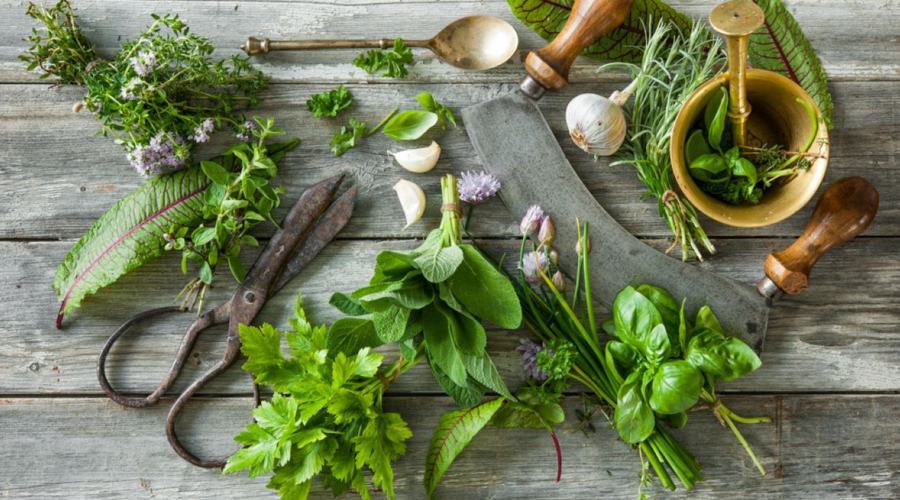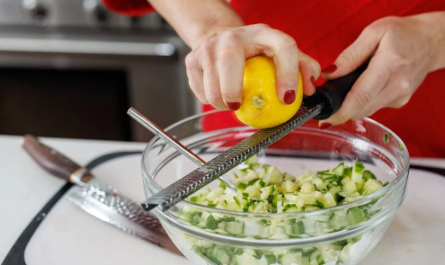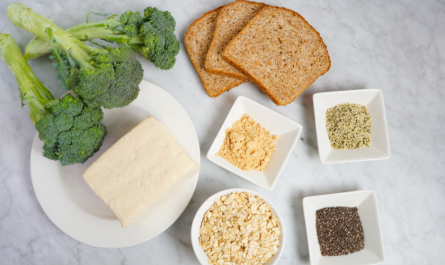Fresh herbs can transform any dish, taking flavors from ordinary to extraordinary. Whether you’re a culinary enthusiast or just looking to spice up your weekly meals, learning to cook with herbs can make a world of difference. This guide will cover everything you need to know to become a pro at using fresh herbs in your kitchen.
Why Use Fresh Herbs in Cooking?
Fresh herbs provide vibrant, natural flavors that are difficult to replicate with dried herbs or spices alone. They can enhance a dish’s aroma, color, and taste, often with just a few leaves or sprigs. Beyond flavor, many herbs offer health benefits, adding antioxidants, vitamins, and minerals to your meals.
Essential Herbs and Their Best Uses
- Basil
Best for: Italian dishes, salads, pasta sauces, and sandwiches.
Basil is a star ingredient in pesto and pairs beautifully with tomatoes, garlic, and olive oil. Its fresh, slightly peppery taste can add depth to soups, pizzas, and even desserts like ice cream. - Parsley
Best for: garnishes, Mediterranean cuisine, soups, and stews.
Parsley’s mild, grassy flavor complements everything from roasted meats to hearty grains. It’s versatile and widely used as both an ingredient and a garnish, adding a burst of green freshness to your plate. - Cilantro
Best for: Mexican, Asian, and Indian dishes, salsas, and curries.
With a bright, citrusy taste, cilantro is perfect in tacos, stir fries, and chutneys. Add it fresh to dishes right before serving to preserve its distinct flavor. - Rosemary
Best for: roasted meats, potatoes, breads, and infused oils.
Known for its woody aroma and slightly piney taste, rosemary works well in dishes with rich flavors, like roasted lamb or potatoes. It can also be used in marinades and oils for added fragrance. - Mint
Best for: Desserts, beverages, Middle Eastern dishes, and salads.
Mint’s cooling effect makes it a refreshing addition to salads, teas, and cocktails. It’s also a great complement to lamb dishes and can balance spicy flavors in certain cuisines. - Thyme
Best for: Soups, stews, roasted vegetables, and marinades.
Thyme’s earthy, slightly minty flavor enhances slow-cooked dishes like stews and braises. It’s a great herb for layering flavor in complex dishes. - Oregano
Best for: Italian and Greek dishes, pizza, and tomato sauces.
Known for its strong aroma, oregano shines in tomato-based dishes, particularly pasta sauces and pizzas. It adds a robust flavor that’s characteristic of Mediterranean cuisine.
Tips for Cooking with Fresh Herbs
- Add Herbs at the Right Time: Fresh herbs are usually added toward the end of cooking to preserve their delicate flavors. More robust herbs, like rosemary and thyme, can handle longer cooking times, while delicate ones like basil and cilantro should be added right before serving.
- Experiment with Combinations: Herbs often taste better together. Try classic combinations like basil and oregano for Italian dishes, or cilantro and mint for a fresh, zesty twist in salads.
- Store Fresh Herbs Properly: Extend the life of your herbs by wrapping them in damp paper towels and placing them in a resealable bag in the refrigerator. Alternatively, herbs like basil and parsley can be stored in a glass of water on your counter.
Easy Herb-Infused Recipes to Try
- Herbed Butter
Combine softened butter with minced parsley, chives, and thyme for a flavorful spread that’s perfect on bread, roasted veggies, or grilled steak. - Minty Lemonade
Add fresh mint to homemade lemonade for a refreshing twist. Simply muddle the leaves with lemon juice before adding water and sweetener. - Cilantro-Lime Rice
Mix cooked rice with chopped cilantro and lime juice for an easy, flavorful side dish that pairs well with Mexican food. - Basil Pesto
Blend fresh basil, garlic, pine nuts, Parmesan cheese, and olive oil for a versatile pesto that can be tossed with pasta, spread on sandwiches, or used as a dip. - Rosemary-Roasted Potatoes
Toss diced potatoes with olive oil, chopped rosemary, salt, and pepper. Roast until crispy and golden for a fragrant, savory side dish.
Health Benefits of Common Fresh Herbs
- Basil: Contains antioxidants and anti-inflammatory compounds.
- Parsley: is rich in vitamins K and C, which support bone health.
- Mint: Helps with digestion and has natural calming effects.
- Rosemary: Known for improving memory and concentration.
- Cilantro: High in vitamin C and helps detoxify heavy metals.
Final Thoughts
Using fresh herbs in your cooking doesn’t just elevate your dishes—it can transform the way you eat. Start small by adding a few herbs to your favorite recipes, and let their natural flavors shine. As you get more comfortable, you’ll find yourself experimenting with combinations, creating meals that are both delicious and healthy.







